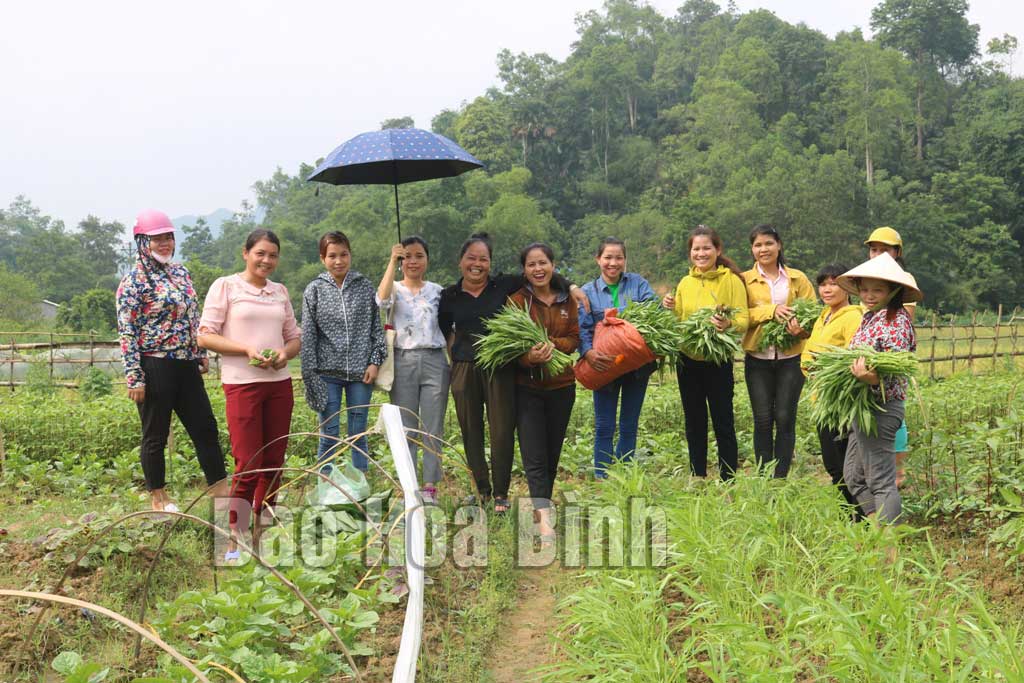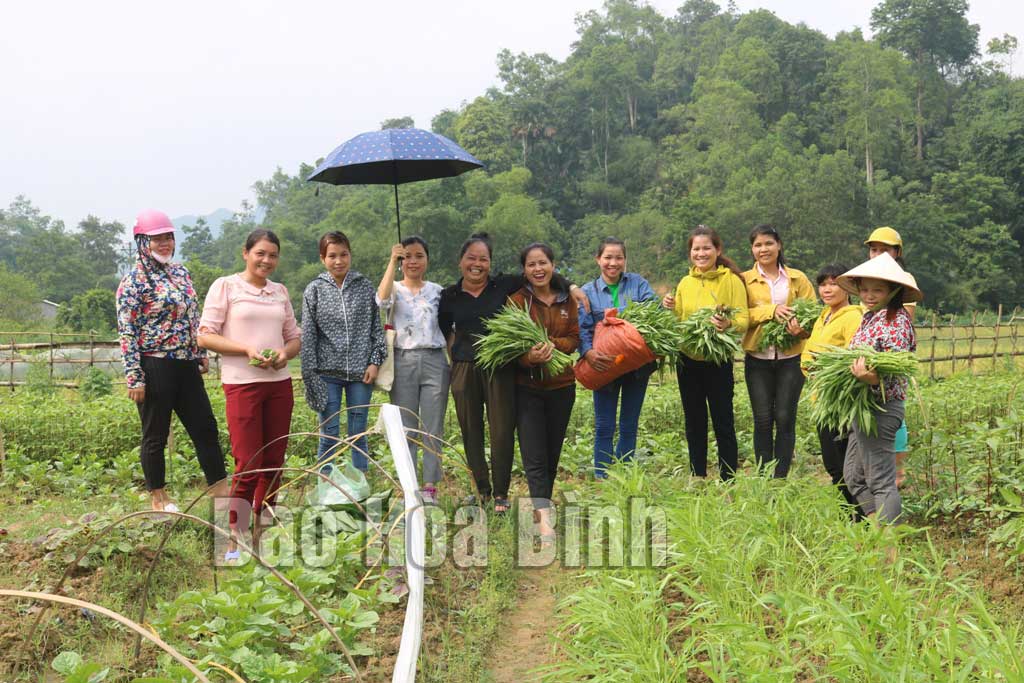
(HBO) – Kim Boi district is home to four main ethnic groups of Muong, Kinh, Dao, and Tay, with the Muong accounting for over 80 percent of the local population. To improve their access to health care, education, information, and clean water, and to narrow the development gap among the localities, the district has for years capitalised on resources for ensuring their social welfare.

Photo: An organic vegetable model by women in Nuong Dam
commune’s Lam Trong hamlet contributes to raising their incomes and boosting
local socio-economic development.
Bui Quang Hop, deputy head of the Kim Boi Ethnic Minority
Office, said over the past two years, complicated developments of the COVID-19
pandemic had affected the life and economic growth of the ethnic groups.
In fact, in the past three years, not much capital was
channeled into the district’s ethnic sector. Therefore, it has focused on
effectively using resources to ensure social security for the communities.
In 2021, Kim Boi distributed 3 billion VND (129,366 USD)
worth of non-refundable aid from the Irish Government among its communes of
Nuong Dam, Du Sang and Tu Son for the construction of four rural roads. It also
implemented the second phase of a project on strengthening self-reliance
capacity for local ethnic minority communities. Sponsored by the Bread for the
World, the project aimed at economic restructuring, income increase, job
creation, and new-style rural building.
Last year, the district completed 17 out of its 18 set
targets and its economy grew over 13.8 percent.The local average per capita income reached 37.3 million VND, while its
poverty rate decreased to 6.2 percent. The percentage of rural households
having access to hygienic water and electricity were 96 and 100 percent,
respectively.
This year, Kim Boi set out 17 goals, targeting an annual
average per capita income of 42 million VND and a 3.5 percent reduction in the
rate of poverty households.
Toward such goals, right from the beginning of the year,
drastic actions have been made to attract investment and support the ethnic
communities./.
According to data from the Hoa Binh Provincial Party Committee, the industrial production index for the first six months of 2025 is estimated to have increased by 20% compared to the same period last year. This marks the highest year-on-year growth rate for this period since 2020.
In the first six months of 2025, Hoa Binh province’s export turnover was estimated at 1.145 billion USD, marking an 18.11% increase compared to the same period in 2024. Import turnover was estimated at $ 804 million, a 17.15% increase, which helped the province maintain a positive trade balance.
The lives of the ethnic minority farmers in Tan Lac district have gradually improved thanks to the new directions in agricultural production. This is a testament to the collective strength fostered through the professional associations and groups implemented by various levels of the district’s Farmers’ Union.
With the motto the "product quality comes first,” after nearly one year of establishment and operation, Muong village’s Clean Food Agricultural and Commercial Cooperative, located in Cau Hamlet, Hung Son Commune (Kim Boi district), has launched reputable, high-quality agricultural products to the market that are well-received by consumers. The products such as Muong village’s pork sausage, salt-cured chicken, and salt-cured pork hocks have gradually carved out a place in the market and they are on the path to obtaining the OCOP certification.
In the past, the phrase "bumper harvest, rock-bottom prices" was a familiar refrain for Vietnamese farmers engaged in fragmented, small-scale agriculture. But today, a new spirit is emerging across rural areas of Hoa Binh province - one of collaboration, organisation, and collective economic models that provide a stable foundation for production.
Maintaining growing area codes and packing facility codes in accordance with regulations is a mandatory requirement for agricultural products to be eligible for export. Recently, the Department of Agriculture and Environment of Hoa Binh province has intensified technical supervision of designated farming areas and packing facilities to safeguard the "green passport" that enables its products to access international markets.



